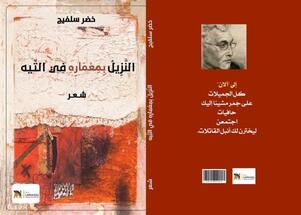-
The cries of Iranian women and my little sister Farah

public floggings, economic disempowerment, social stigmatization: These are daily reminders to the women of my country, Iran, that in the eyes of their government they are lesser.
Every day, this reality is reinforced by untold abuses, restrictions, and insults – perhaps none of which is more appalling than the travesty of girls, as young as nine, who are forced to marry men decades their senior.
When I hear of these sickening acts, I can’t help but think of my little sister, Farah.
Farah is fifteen. She’s smart, athletic, beautiful, and free, although she would argue against that last part. Like all young women, she is engaged in a constant battle with our mother to challenge every limit she can.
Farah is a force to be reckoned with, like her namesake, our grandmother. I know she has the potential to channel that into great things. So it’s painful to imagine all of her potential, her life, stolen from her by a regime that despises her.
It is difficult to imagine her in an early marriage when she still has so much maturing, emotionally and physically, left to do.
Farah is accepted by friends, encouraged by teachers, and offered every opportunity to succeed. But who would she have been if society hadn’t propelled her forward, but had instead forcibly veiled her and violated her most fundamental rights?
Farah is growing up at a time when the women of the west are removing the remaining roadblocks in their path to full equality. While that progress continues, it is imperative that the stories be told of the heroic women of Iran who are fighting back against the threats to their rights and their very existence.
These strong and proud women are beaten down by legal discrimination, economic injustice, and social prohibitions. The World Economic Forum’s 2018 Global Gender Gap report, which ranks countries on “their progress towards gender parity,” ranks Iran 142nd out of 149 nations.
Iranian women are prohibited from the rights of divorce and equal inheritance, barred from travel without their husbands’ permission, and systematically discriminated against in the job market. There are also limitations on the subjects that Iranian women, who make up more than 60 percent of university students, can study.
Farah is bonded to my mother in a different way than my sister, Iman, and I are. We had each other growing up, but my mother calls Farah her little soulmate. Had Farah grown up in Iran, she might have lost our mother this year, because of the lack of attention to women’s medical care there. The issue of women’s health in Iran became even clearer after my mother’s recent cancer diagnosis and her subsequent campaign to raise awareness about the disease.
Everyone has a story – and those of the women of Iran are truly harrowing. Through social media, they tell me of the limits they face and the abuses they endure, which are heartbreaking. Women are harassed by “morality” police and denied jobs, which might insult their husbands’ dignity.
But Iran was not always like this. These restrictions are not holdovers from a bygone era or unenforced, vestigial statutes yet to be ameliorated by reformers.
Prior to the Islamic Revolution, my grandfather and great-grandfather instituted widespread reforms granting extensive rights and protections to women. Their vision supported the progress of a generation of women. Many of those same women were instrumental in passing the Family Protection Laws of 1967 and 1975, which took massive steps to establish equality.
These laws banned polygamy, granted women the right to divorce, and raised the age of marriage for women to 18.
After 1979, each of these was annulled. In December 2018, a motion to partially limit the practice of forced child marriage and raise the age of marriage for girls to 13 was defeated.
These systematic violations of the basic rights of women in Iran are calculated limitations on their independence and attempts to suffocate their natural strength and courage, and they must not prevail.
Iranian women, like Farah, are independent and strong-willed, so they will continue to fight their oppressors every day, but they need support. The present wave of demand for greater women’s equality can’t just be for western women. It has to be for all women.
The encouragement, validation, and freedom Farah has had are exactly what the women of Iran deserve. If you pay attention, you will hear millions of Iranian women shouting, not to be saved, but to be heard. Will you listen?
Princess Noor Pahlavi is the first child of Iran’s former Crown Prince Reza Pahlavi. She’s an MBA student at Columbia University and works as an advisor to the non-profit impact investment fund Acumen.
This article was published in Persian by the Independent Persian on June 7, 2019
You May Also Like
Popular Posts
Caricature
BENEFIT Sponsors BuildHer...
- April 23, 2025
BENEFIT, the Kingdom’s innovator and leading company in Fintech and electronic financial transactions service, has sponsored the BuildHer CityHack 2025 Hackathon, a two-day event spearheaded by the College of Engineering and Technology at the Royal University for Women (RUW).
Aimed at secondary school students, the event brought together a distinguished group of academic professionals and technology experts to mentor and inspire young participants.
More than 100 high school students from across the Kingdom of Bahrain took part in the hackathon, which featured an intensive programme of training workshops and hands-on sessions. These activities were tailored to enhance participants’ critical thinking, collaborative problem-solving, and team-building capabilities, while also encouraging the development of practical and sustainable solutions to contemporary challenges using modern technological tools.
BENEFIT’s Chief Executive Mr. Abdulwahed AlJanahi, commented: “Our support for this educational hackathon reflects our long-term strategic vision to nurture the talents of emerging national youth and empower the next generation of accomplished female leaders in technology. By fostering creativity and innovation, we aim to contribute meaningfully to Bahrain’s comprehensive development goals and align with the aspirations outlined in the Kingdom’s Vision 2030—an ambition in which BENEFIT plays a central role.”
Professor Riyadh Yousif Hamzah, President of the Royal University for Women, commented: “This initiative reflects our commitment to advancing women in STEM fields. We're cultivating a generation of creative, solution-driven female leaders who will drive national development. Our partnership with BENEFIT exemplifies the powerful synergy between academia and private sector in supporting educational innovation.”
Hanan Abdulla Hasan, Senior Manager, PR & Communication at BENEFIT, said: “We are honoured to collaborate with RUW in supporting this remarkable technology-focused event. It highlights our commitment to social responsibility, and our ongoing efforts to enhance the digital and innovation capabilities of young Bahraini women and foster their ability to harness technological tools in the service of a smarter, more sustainable future.”
For his part, Dr. Humam ElAgha, Acting Dean of the College of Engineering and Technology at the University, said: “BuildHer CityHack 2025 embodies our hands-on approach to education. By tackling real-world problems through creative thinking and sustainable solutions, we're preparing women to thrive in the knowledge economy – a cornerstone of the University's vision.”
opinion
Report
ads
Newsletter
Subscribe to our mailing list to get the new updates!





















